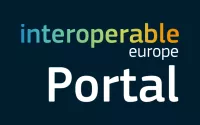

The NextGov Hackathon featuring Nextcloud is an online hackathon organised by the Open Source Programme Office at the European Commission together with Nexcloud. It builds upon earlier open source hackathons organised by the European Commission to enable the rapid creation of innovative solutions.
The hackathon is scheduled for the week of 25 April to 10 May 2022.
Let's work together and improve Nextcloud for public services!
Nextcloud is currently used by many public services in Europe (universities, governments, cities etc.) as an alternative to Big Tech solutions, keeping their documents and communication safe in Europe. The European Commission’s Open Source Programme Office is organising a hackathon to enhance Nextcloud with additional features so that more public administrations can include such solutions as part of their digitalisation journey.
This is a call to action to all ethical hackers to work on the proposed challenges by Nextcloud or come up with new ones toimprove the software experience for public services. The winners or winning teams will be rewarded with cash prizes from €5000 to €500.
For more information, visit the hackathon webpage https://nextgov-hackathon.eu
The European Commission Open Source Programme Office (EC OSPO) was created in 2020 as the first concrete action of the latest Open Source Software Strategy for 2020-2023. It acts as a facilitator for activities outlined in the strategy and the action plan guided by six principles: think open, transform, share, contribute, secure, stay in control. In practice, the Commission aims to reinforce an internal working culture that is already largely based on the principles of open source and achieve the goals of the strategy by the following concrete actions:
- Set and promote the inner source default;
- Enhance the software repository;
- Revise software distribution practices;
- Enable and create innovation with open source labs;
- Develop skills and recruiting expertise;
- Increase outreach to communities;
- Integrate open source in internal IT governance;
- Ensure OSS security.
Shared on


